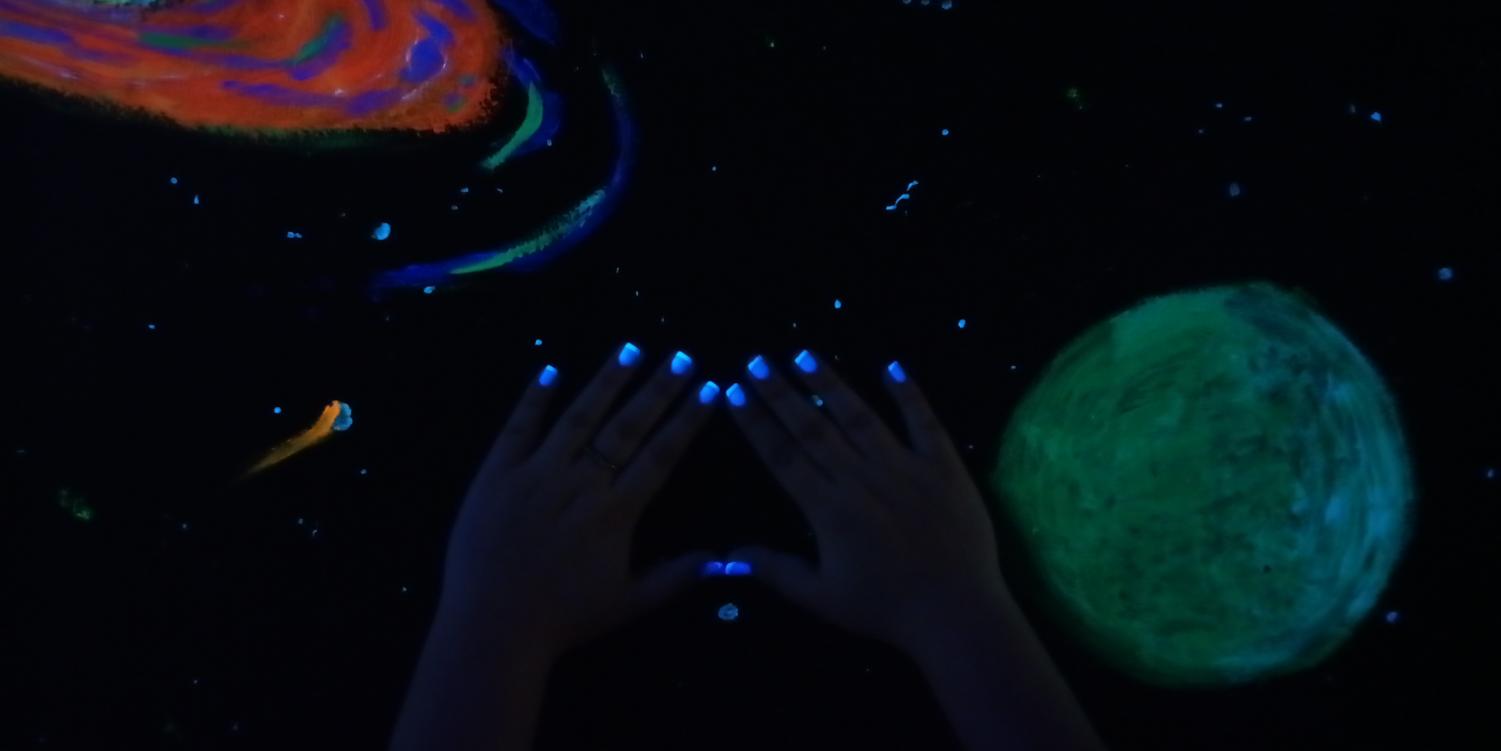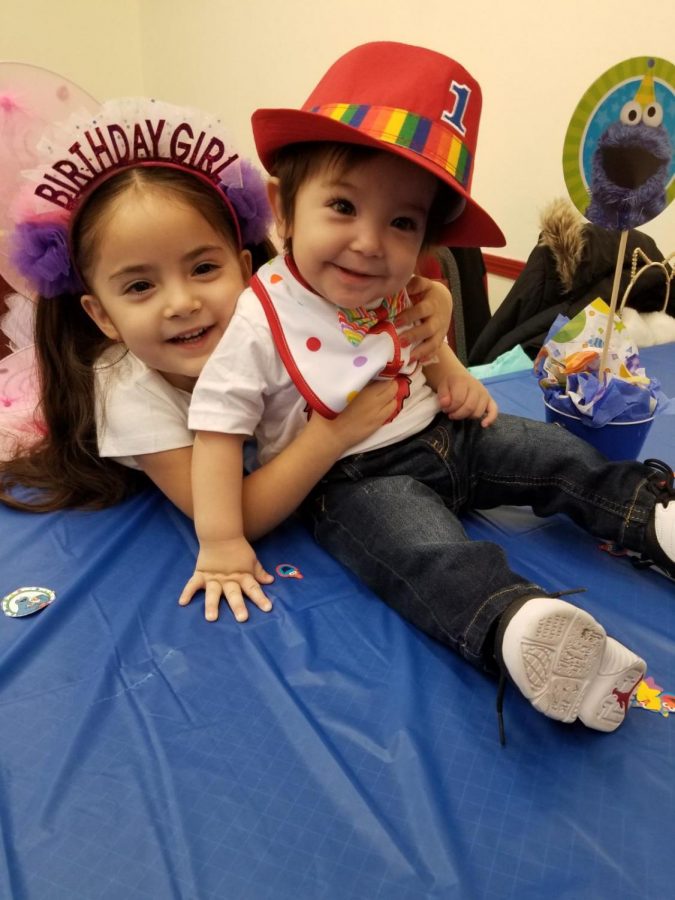The Insomniac Special: What is Family?
February 19, 2019
Family is family. That doesn’t make it important.
Growing up in a Mexican family, I did not inherit the language or many of the customs and traditions of the culture. I did, however, inherent a lofty value of family. Not only value of my nuclear family but also of nearly every biological relative and relative-in-law. There’s also every friend “adopted” into the family.
My friend Erica is the opposite. After being asked whether or not she considered her divorced father a part of her family, she replied family was all but irrelevant in her life. Fascinated by this Hispanic heresy, I felt I needed to understand her thinking. I discovered more about myself than I ever would have predicted.
Untangling the conundrum of “what is family” wasn’t easy. The question invites subjectivity. It’s hardly acceptable to define your family as just the blood related relatives you live with without also answering, “OK, but what does that mean to you?”
The word as it’s used today carries with it the weight of greater expectation. Family isn’t just the two sentence definition supplied by Google’s dictionary. Family is a choice.
But Erica didn’t choose anyone either. Although she distinguished family by shared residence and bloodline, that failed once I started asking questions. Her definition of family fluctuated based on which member of her single-mother, three-sibling household hypothetically moved away. She admitted friends could be considered family, especially if they moved in. Although her cohabitating “residential family” is who she mentioned for the sake of most related conversations, that didn’t live up to her real definition of family.
The answer manifested itself as a mangled mess of personal values, conditioned social stigmas and unrequited emotions. The solution to unraveling it was acknowledging the unthinkable: family just isn’t that important.
Erica ruminated silently about our exploration while I scribbled notes into my pocketbook. Lost in one of the walls she spoke,
“It’s a little bit sad, really thinking about my family like this.”
My pen halted mid-letter.
“It doesn’t have to be sad. Just because your family isn’t very important and your friends are more important. That doesn’t have to be a bad thing. What matters is that you had those relationships at all. Those friendships influenced you more; they were present more; they made you feel more.”
She nodded wordlessly. There wasn’t anything on the wall.
The word “family” has no intrinsic value. We assign it meaning. Each person in a family composes a single strand of an intricate and interconnecting social web who all influence one another. Each connection is just another relationship. It’s between two people who are attempting to communicate and relate to one another. For me, that’s an afterthought.
Last weekend, I went out to Luigi’s Pizza and Fun Center for the joint birthday celebration of my 1 and 4-year-old-cousins, Josiah and Joclyn. I’ve worn a Luigi’s arcade key on my lanyard for years. But Luigi’s fluorescent game room and ticket-inflated prizes were never its greatest allure. There was always a delicate balance of not asking for too much game room money from dad so he would shell out the cash for the real action: Laser Tag.
I’m glad my younger cousins have started growing up. Before, the biggest problem I had was convincing enough people to play, hopping in with someone else’s party, or earning enough tickets for the coveted 30-minute Laser Tag pass in the display case. Now, my only struggle is choosing between listening to either “Ram Jam” or “Dream On” while I’m picking off glowing green vests aged 9-14 from the top floor with phaser fire.
Surprisingly, it wasn’t only the birthday cake that gave me food for thought that night. I used to be one of those fumbling, trigger happy rebels dodging around the arena. Now, I was the juggernaut unleashing beams of destruction on anyone who met my crosshairs. It probably wasn’t that cool.
The point is, as juvenile as it might sound, I’ll always have playmates. At some point while growing up I thought to myself: some of the games I love to play might go away. When I step into almost any game with my cousins I change its whole dimension. I’m the one to beat. I’m happy to make those experiences memorable for them because I’m having fun, too. That’s family.
Not everyone gets that. Erica’s family relationships are second only to roommates. It’s not unusual for her to talk to her mom once a week. Even when they’re in the same room her family doesn’t talk much. For all intents and purposes, her family is a non-factor.
With her family held to such a low standard, it intrigued me that she would say her friends could eventually become family. According to her, friendship was very important. There seemed to be an integral disconnect between her nuclear family, her friends and what she wanted her family to be.
We surmised three pivotal flaws in her residential family interactions that could help elevate it to that perceived ideal: discussion, interest and proximity.
Erica loves to discuss movies with her nuclear family because of the back and forth, building dialogue focusing on a central idea. They fail to recapture that rhetoric elsewhere.
A lack of interest in the conversation contributes to her lack of emotional fulfillment. That’s even more true when the other family members are not invested or contributing to the discussion.
Being in close proximity to someone helps enhance the authenticity of interactions. In the case of Erica’s family, it had more to do with the lack of proximity and the consequent lack of shared experiences.
Erica’s friendships had all of these things. Yet there was still some intangible factor she felt removed them from the title of “family.”
Sometimes family isn’t important. That doesn’t mean we don’t want the same things. Those friendships came at a time when Erica needed them most. At a time when she was down on herself, the insignificance of human existence came just to mock her.
The hours spent talking with her friends after marching band weren’t spent divulging her murkiest secrets and insecurities. They were light and easy. She just needed to be distracted for a while. They probably didn’t even know how much she was struggling, but they were someone to relate to. That alone created the most significant relationships of Erica’s life.
The word “family” in a modern context is used to represent more than just cohabitating relatives. Instead, it’s used to represent a relational ideal people decide who becomes a part of. That’s not the point of the word.
Words like “family” and “friendship”, have no inherent weight. They’re terms to describe relationship types. For some reason, people give them significance based on the cultural climate. When we allow ourselves to become so nonchalant with definitions it creates more than just a etymology problem.
Families and friendships are the synthesis of multiple relationships within the same circle. They do influence one another. However, they are also still ordinary relationships. They should be evaluated for their independent quality, effectiveness and status without needing to be tied to stigmatized definitions of what it means to be a “family member” or a “friend.”
We restrict our vocabularies when discussing these important distinctions. It’s similar to our inability to communicate about the concept of “love” because of our inadequate vocabulary about its varied and complex vestiges.
Family has no single definition, but not because it’s subjective from person to person. A person should harbor multiple definitions of family. To be properly inclusive of the definitions of family, further sub-distinctions of family is required. They should be treated as unique units even when they overlap.
It’s a problem at its worst when we confine our relationships to standardized conceptions of what words like “family” and “friend” mean within the public eye. In doing so we may force a relationship to be compartmentalized somewhere it doesn’t fit. Rather than evaluating it in and of itself.
This muddled hierarchy of relationship statuses enforces skewed perceptions of relationships. They may be maintained based on how someone treats “friends” or “family” in principal rather than their actual effectiveness in application. If someone maintains a more inclusive definition of “family” or “friends,” it can be a dangerous precedent if they have a contemporary philosophy like:
“Family is forever, and family is the friends that you choose.” Especially in the face of an unhealthy or dysfunctional relationship.
Words like “family” and “friend” define the type of relationship. Not the quality of its interactions or their significance.



















